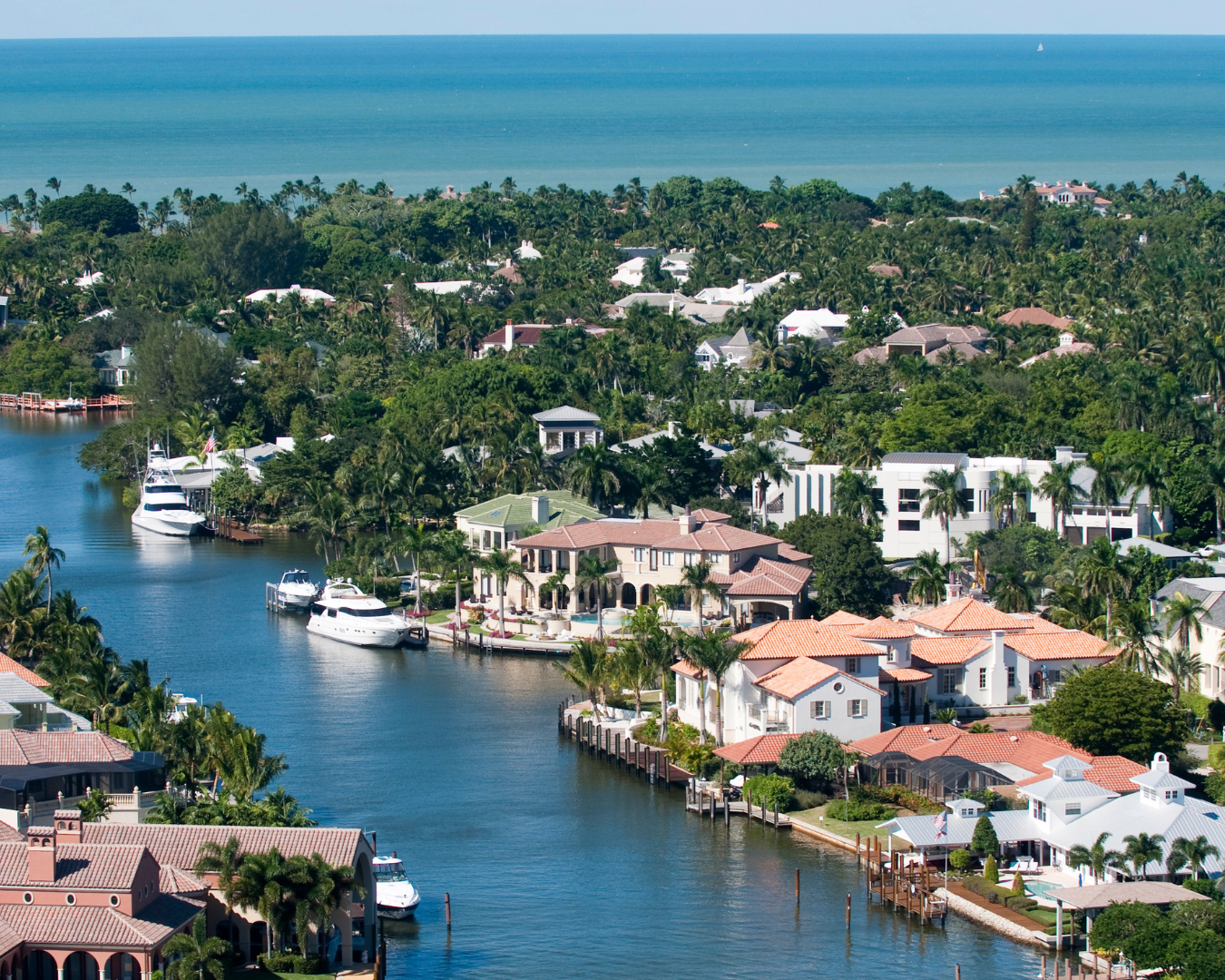Waterfront Property Appraisals: Understanding Valuation Methods for Unique Properties
Waterfront properties represent some of the most coveted and complex real estate assets in the market. Whether it's a lakeside cabin, oceanfront mansion, or riverfront commercial property, these unique assets require specialized appraisal approaches that go far beyond traditional real estate valuation methods. Understanding how these properties are valued is crucial for buyers, sellers, lenders, and investors navigating the waterfront real estate market.
Why Waterfront Properties Are Different
Waterfront properties possess characteristics that set them apart from typical real estate investments. The proximity to water brings both significant value premiums and unique challenges that standard appraisal methods struggle to capture adequately.
Premium Location Benefits:
- Unobstructed views and natural beauty
- Direct water access for recreation
- Limited supply creating scarcity value
- Prestige and lifestyle appeal
- Potential for rental income from water activities
Unique Risk Factors:
- Environmental regulations and restrictions
- Flood and storm damage exposure
- Erosion and shoreline stability issues
- Water level fluctuations
- Seasonal accessibility challenges
Primary Valuation Methods for Waterfront Properties
The Sales Comparison Approach
The sales comparison approach remains the foundation of waterfront property appraisal, but it requires sophisticated adjustments to account for water-specific features. Appraisers must identify truly comparable properties, which can be challenging given the unique nature of each waterfront location.
Key Comparison Factors:
- Water frontage length: Linear feet of shoreline significantly impacts value
- Water depth and access: Deep water access for larger boats commands premiums
- View quality: Panoramic views versus limited sightlines
- Beach or shoreline type: Sandy beaches, rocky shores, or marsh areas
- Water body characteristics: Ocean, lake, river, or bay properties each have different value drivers
Adjustment Challenges: Finding sufficient comparable sales within a reasonable timeframe and geographic area often proves difficult. Appraisers may need to expand their search radius or look back further in time, requiring additional market condition adjustments.
The Cost Approach
The cost approach takes on added complexity for waterfront properties due to specialized construction requirements and site preparation needs.
Waterfront Construction Considerations:
- Foundation requirements: Pilings, flood-resistant foundations, and elevation requirements
- Materials specifications: Corrosion-resistant materials and weatherproof construction
- Regulatory compliance: Meeting setback requirements and environmental restrictions
- Site preparation: Bulkheads, docks, and shoreline stabilization
- Utility challenges: Extended runs for power, water, and sewer services
The replacement cost for waterfront improvements often exceeds typical construction due to these specialized requirements, while land value calculations must account for both upland and water rights.
The Income Approach
For investment-oriented waterfront properties, the income approach requires careful consideration of seasonal variations and water-specific income streams.
Rental Income Analysis:
- Seasonal rate variations reflecting peak water recreation periods
- Premium pricing for direct water access and views
- Additional income from dock rentals or boat storage
- Potential for short-term vacation rental premiums
Expense Considerations:
- Higher insurance costs for flood and storm coverage
- Specialized maintenance for water-exposed structures
- Seasonal property management costs
- Environmental compliance expenses
Special Valuation Considerations
Water Rights and Riparian Rights
Understanding the legal framework surrounding water access is crucial for accurate valuation. Properties may include:
- Littoral rights for properties adjacent to oceans or lakes
- Riparian rights for properties along rivers or streams
- Navigational easements that may limit private use
- Mineral rights that could affect future development
Environmental Factors
Environmental considerations significantly impact both value and development potential:
Regulatory Restrictions:
- Wetlands regulations limiting construction
- Setback requirements from water bodies
- Endangered species habitat protections
- Water quality protection measures
Physical Environmental Factors:
- Flood zone designations and base flood elevations
- Erosion rates and shoreline stability
- Water quality and pollution concerns
- Climate change impacts on water levels
Market Dynamics
Waterfront property markets often exhibit unique characteristics that appraisers must understand:
Supply Constraints: Limited waterfront land creates natural scarcity, but this varies significantly by location and water body type.
Demand Patterns: Buyer demand often correlates with economic cycles, seasonal patterns, and lifestyle trends more strongly than typical residential markets.
Price Volatility: Waterfront properties may experience more dramatic value swings due to their luxury nature and limited buyer pool.
Common Appraisal Challenges
Limited Comparable Sales Data
The unique nature of each waterfront property makes finding truly comparable sales difficult. Appraisers must often:
- Expand geographic search areas
- Consider properties on different water bodies
- Make complex adjustments for varying water features
- Rely on older sales data with significant time adjustments
Seasonal Market Variations
Many waterfront markets experience significant seasonal variation in both activity and pricing. Spring and summer sales may command premiums that aren't sustainable year-round, requiring appraisers to carefully analyze seasonal trends.
Measurement and Access Issues
Physical property inspection can be challenging due to:
- Seasonal accessibility limitations
- Water-level variations affecting measurements
- Determining actual usable waterfront footage
- Assessing underwater features and depth
Best Practices for Property Owners
For Sellers
Documentation Preparation:
- Maintain records of all waterfront improvements
- Document water rights and legal access
- Provide flood insurance history and claims
- Compile environmental compliance documentation
Property Presentation:
- Ensure clear access for appraiser inspection
- Highlight unique water features and amenities
- Provide information about seasonal characteristics
- Document any recent environmental studies
For Buyers
Due Diligence:
- Understand local flood zones and insurance requirements
- Investigate water rights and usage restrictions
- Research potential environmental liabilities
- Evaluate long-term climate and water level trends
Appraisal Review:
- Verify that comparables are truly similar properties
- Ensure water-specific features are adequately considered
- Challenge appraisals that seem to under-value unique features
- Consider obtaining multiple appraisals for high-value properties
The Future of Waterfront Appraisals
The waterfront appraisal field continues to evolve with advancing technology and changing environmental conditions. Emerging trends include:
Technology Integration:
- Drone photography for comprehensive property documentation
- GIS mapping for precise waterfront measurements
- Flood modeling software for risk assessment
- Market analytics tools for improved comparable selection
Climate Considerations:
- Sea level rise impact assessments
- Extreme weather frequency analysis
- Long-term sustainability evaluations
- Green infrastructure valuation methods
Conclusion
Waterfront property appraisals require a sophisticated understanding of both traditional valuation methods and the unique factors that influence water-adjacent real estate. The combination of premium location benefits, environmental risks, regulatory complexity, and limited comparable data creates a challenging but rewarding appraisal specialty.
Whether you're a property owner, potential buyer, or real estate professional, understanding these valuation complexities helps ensure that waterfront properties are accurately assessed and appropriately priced. As environmental concerns and climate change continue to influence waterfront markets, the importance of skilled, knowledgeable appraisers in this specialized field will only continue to grow.
The key to successful waterfront property transactions lies in working with experienced professionals who understand both the unique value drivers and the inherent risks associated with these distinctive properties. By recognizing the complexity involved and planning accordingly, stakeholders can navigate the waterfront real estate market with greater confidence and success.
Your Waterfront Property Experts
When it comes to navigating the complexities of waterfront real estate in the Annapolis, MD and Naples, FL markets, experience matters. The Reel Waterfront Group of Cornerhouse Realty brings more than 25 years of specialized luxury waterfront experience to every transaction. Our deep understanding of local market conditions, environmental factors, and valuation complexities ensures that whether you're buying or selling waterfront property, you'll have expert guidance every step of the way.
Ready to explore waterfront opportunities or need expert guidance on your waterfront property? Contact The Reel Waterfront Group today to discover how our quarter-century of specialized experience can help you achieve your waterfront real estate goals with confidence.



